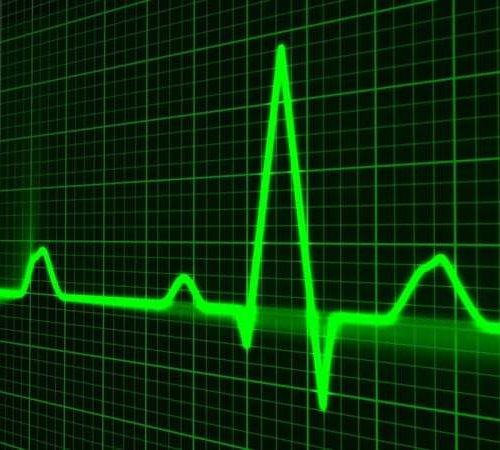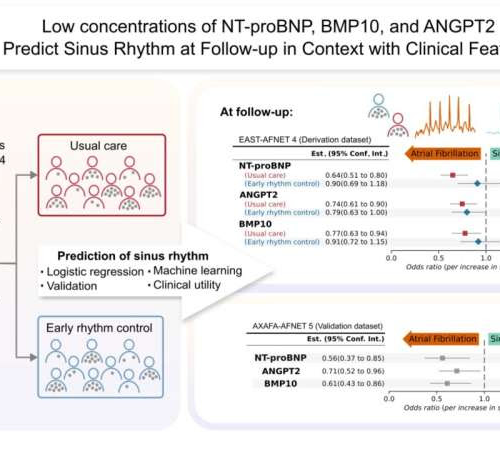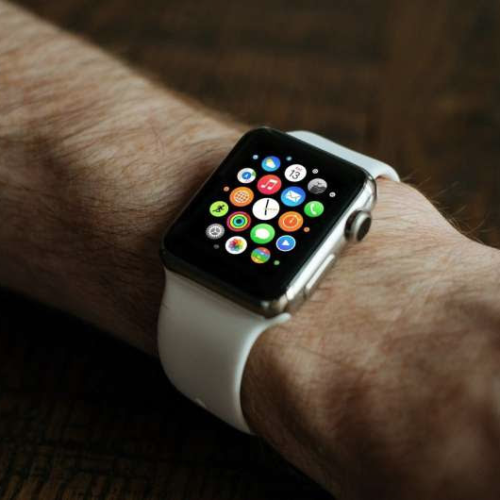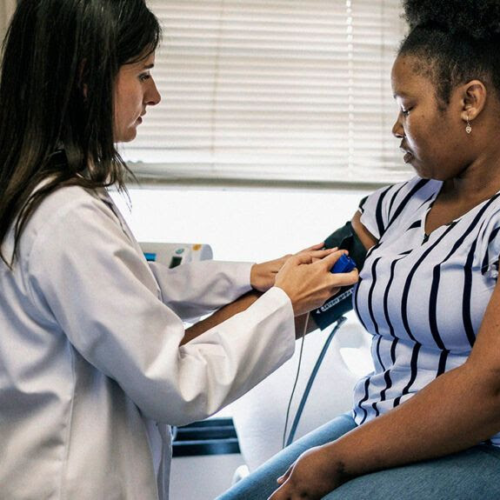by American Heart Association Credit: Pixabay/CC0 Public Domain Drinking multiple cups of coffee a day may help prevent cognitive decline in people with atrial fibrillation (AFib or AF), according to new research published in the Journal of the American Heart Association. “Many myths are around, but our study found no reason to discourage or forbid a patient with AFib...
Tag: <span>Atrial fibrillation</span>
Rising outdoor temperatures tied to higher risk for atrial fibrillation
by Lori Solomon There is a dose-response relationship between rising outdoor temperatures and increased atrial fibrillation (AF) events, according to a study presented at the American Heart Association Scientific Sessions 2024, held from Nov. 16 to 18 in Chicago. Barrak Alahmad, M.D., Ph.D., M.P.H., from Harvard University in Boston, and colleagues examined the role of...
The Rising Tide of Atrial Fibrillation: Is Primary Care Ready?
The incidence of atrial fibrillation (AF) is on the rise, and recent joint guidelines from the American College of Cardiology and American Heart Association (ACC/AHA) stress the role of primary care clinicians in prevention and management. One in three White and one in five Black Americans will develop AF in their lifetime, and the projected number of individuals diagnosed with AF...
What Are the Causes and Triggers of Atrial Fibrillation?
Written by Sarah Pozniak, MD | Reviewed by Patricia Pinto-Garcia, MD, MPH Updated on January 12, 2024print_outlinedemail_outlined Key takeaways: sudok1/iStock via Getty Images Plus Atrial fibrillation (AFib) is a type of abnormal heart rhythm (arrhythmia). In fact, it’s the most common type of treated abnormal heart rhythm in the United States. Up to 6 million people in the U.S. have it. AFib happens when...
Atrial fibrillation estimated to be three times more common than previously thought
September 11, 2024 by University of California, San Francisco Credit: Pixabay/CC0 Public DomainAtrial fibrillation, a rapid, irregular heart beat that can lead to stroke or sudden death, is three times more common than previously thought, affecting nearly 5% of the population, or 10.5 million U.S. adults, according to new estimates from UC San Francisco. A-Fib,...
Biomarkers may predict future sinus rhythm in patients with atrial fibrillation
September 2, 2024 by Kompetenznetz Vorhofflimmern e.V. (AFNET) Graphical Abstract. Credit: European Heart Journal (2024). DOI: 10.1093/eurheartj/ehae611Low concentrations of three selected biomarkers in the blood of patients with atrial fibrillation identify patients with a high chance of attaining sinus rhythm. This is the main result of this analysis of the EAST—AFNET 4 biomolecule study. The...
Wearable devices may increase health anxiety, atrial fibrillation study finds
JULY 24, 2024 by University of North Carolina Health Care Credit: CC0 Public DomainUsing a wearable device, such as a smart watch, to track health data and symptoms, is supposed to help people monitor their health and address symptoms as quickly as possible to spur positive health outcomes. But for people with atrial fibrillation, also...
Pulsed field ablation procedures found safe and effective for atrial fibrillation patients
NEWS RELEASE 8-JUL-2024 Peer-Reviewed PublicationTHE MOUNT SINAI HOSPITAL / MOUNT SINAI SCHOOL OF MEDICINE IMAGE: DR. VIVEK REDDY LED THE LARGEST STUDY OF ITS KIND THAT SHOWS PULSED FIELD ABLATION IS SAFE FOR TREATING PATIENTS WITH COMMON TYPES OF ATRIAL FIBRILLATION. CREDIT: MOUNT SINAI HEALTH SYSTEM Pulsed field ablation (PFA) is safe for treating patients...
Study reports ‘excellent’ outcomes for patients receiving optimized treatment for atrial fibrillation
by Mass General Brigham 12 lead ECG showing atrial fibrillation at approximately 150 beats per minute. Credit: James Heilman, MD/Wikipedia/CC BY-SA 3.0Atrial fibrillation (AF) is the most common form of arrythmia or irregular heartbeat worldwide, impacting millions of people in the U.S. alone. In a study published in Heart Rhythm, researchers from Brigham and Women’s...
Is there a cure for atrial fibrillation?
There is currently no cure for atrial fibrillation. However, treatments, such as beta-blockers and electrical cardioversion, can help control symptoms and reduce the risk of complications. Atrial fibrillation (AFib) is an irregular heart rhythm. If it causes symptoms, people may experience a faster heart rate, dizziness, or chest pain. This article looks at whether there...






